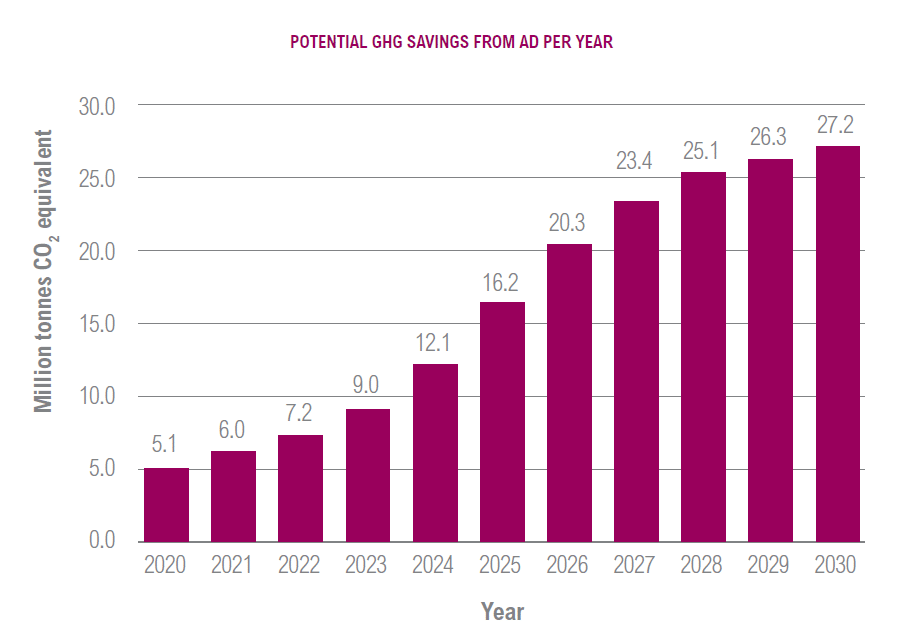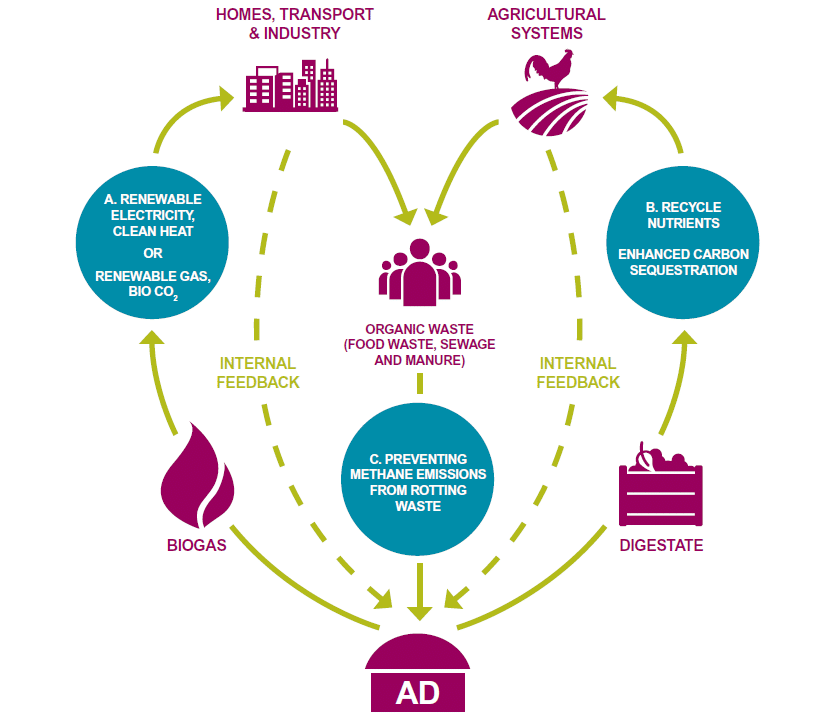AD benefits highlighted in Scottish Parliament debate On 6 January 2026, the Scottish Parliament held…
Organic waste – A gold mine in the right hands

Humans generate around 105 billion tonnes of organic waste annually, directly and indirectly. According to the world bank, 33% of the annual waste generated is not managed in an environmentally safe manner. Zooming in on the UK, our estimates show that an estimated 170 million tonnes of organic waste will be generated by 2030. When left to rot, this waste generates carbon dioxide and methane, a far more potent greenhouse gas. This is a crisis on both a national and a global scale.
However, organic waste holds a greater value to us in the AD sector, as it provides the raw materials to generate biogas, a clean, renewable fuel, that can replace fossil fuels in the energy and transport sectors.
Over 700 AD plants are currently operating in the UK, providing a combined biogas capacity of 2,782 MW. Combining the amount of methane emission avoided from the waste sector, with the production of green gas and biofertilizer, the sector currently contributes to a 1% reduction of all greenhouse gas emissions from the UK.
However, a large amount of organic waste is either sent to landfills or incinerated in the UK every year. Of 13.6 million tonnes of food wasted each year in the UK, only a fraction is anaerobically digested while the rest is left to rot, emitting greenhouse gases such as methane. If all these waste feedstocks are diverted to AD, the industry has the potential to produce an additional 35.8 TWh of biogas, heating another 3 million homes.
AD is a mature technology that can be deployed within a few years. What is urgently needed now is the right regulatory framework to be put into place, including the organic waste collection infrastructure necessary to ensure these wastes go to AD for treatment.
WBA’s Chief Executive Charlotte Morton

Organic waste is a gold mine in the right hands, and we have the right technologies to harvest this gold, a.k.a. the biogas from the waste. This, however, needs various strategies starting with, policy and financial mechanisms for
- Providing support for small business and community projects on transforming local waste into local heat and power.
- Diverting all organic waste to be treated through AD
- Implementing separate collection of food and green waste and diversion to AD as the optimal treatment method
We are diving into this topic, addressing the potential of the waste sector; farm waste, food waste, and wastewater in decarbonising the country, in our upcoming National Conference on 8th December. The availability of tickets is limited, so sign up below to get your ticket to the ADBA National Conference.

